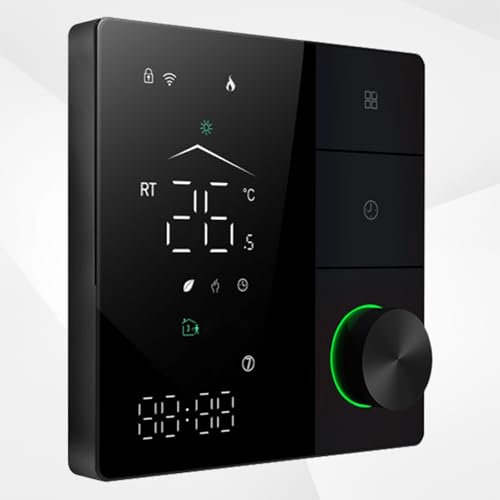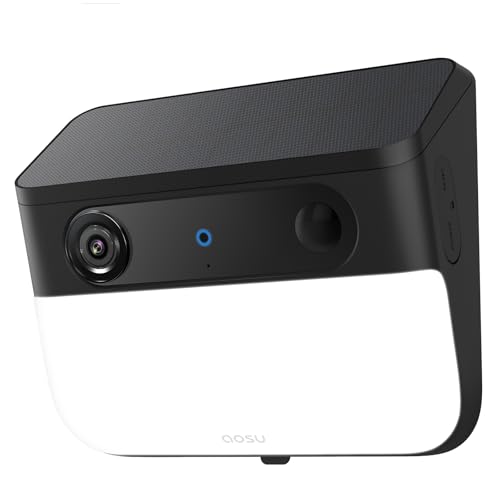Introduction to AI in Everyday Life
Artificial intelligence (AI) has rapidly transitioned from being a futuristic concept to an integral component of our daily lives. As technology continues to advance, AI seamlessly integrates into various devices and applications, enhancing our experiences and providing unprecedented convenience. This evolution signifies a pivotal moment in how we interact with technology, fundamentally changing our behaviors and routines, often without our conscious recognition.

To appreciate the impact of AI, it is essential to understand that it exists in many forms across various platforms. From voice-activated assistants in our homes to algorithm-driven recommendations on streaming services, these AI-driven technologies streamline tasks, personalize experiences, and improve efficiency. The brilliance of AI lies in its subtlety; it works in the background, allowing users to benefit from its capabilities without necessarily being aware of its presence.
In the context of household devices, AI contributes to increased automation and intelligent operation. Smart appliances, such as refrigerators that track inventory and laundry machines that adjust their cycles based on fabric type, demonstrate how AI enhances user convenience. Additionally, smart home security systems utilize AI algorithms to differentiate between usual activity and potential threats, ensuring higher safety standards for residents.
As we explore the ways AI pervades our everyday settings, it becomes strikingly clear that its influence is profound. The technology not only supports routine functions but also anticipates user needs, making life more manageable. In an age where efficiency and personalization are highly valued, understanding AI’s role in daily interactions with technology will shed light on its growing importance and potential for the future.
Understanding Smart Plugs: Your Home’s Brain
Smart plugs represent a significant advancement in the realm of home automation, serving as the brain of modern households by allowing users to control various devices remotely. These compact devices easily fit into outlet sockets, enabling users to connect traditional appliances, such as lamps, coffee makers, or fans, to a Wi-Fi network. Through associated smartphone applications, these smart devices empower users to monitor and manage their energy consumption seamlessly. This technology not only enhances convenience but also fosters energy efficiency.
One of the primary functionalities of smart plugs is their remote operability. Users can turn devices on or off from anywhere, whether they are at work or on vacation, which can drastically reduce energy waste commonly associated with devices inadvertently left on. Furthermore, the scheduling feature enables users to set specific times for devices to operate, thus optimizing energy usage. For instance, scheduling lights to turn on at dusk can enhance home security and provide a welcoming atmosphere without manual intervention.
AI algorithms embedded in many smart plugs analyze usage patterns, helping to identify energy consumption trends and providing insights into how users can alter habits for improved efficiency. By learning from past usage, these smart plugs optimize device operation, potentially decreasing energy bills significantly. Additionally, some advanced models are equipped with features like energy monitoring, which allows users to track the real-time energy consumption of each connected device, making it easier to identify power-hungry appliances.
In light of these functionalities and benefits, smart plugs not only enhance convenience and efficiency but also signify a vital step towards a more automated and intelligent home. Transitioning to this technology can lead to smarter energy management in everyday life, ultimately contributing to a more sustainable future.
AI-Powered Smart Speakers: More Than Just Music
AI-powered smart speakers have revolutionized the way we interact with technology, offering much more than mere music playback. Devices such as Amazon’s Echo and Google Nest utilize sophisticated artificial intelligence algorithms to understand and respond to voice commands, making everyday tasks more convenient. These speakers are equipped with voice recognition capabilities that allow them to discern individual users’ voices, providing personalized interactions and tailored responses based on user preferences and history.
In a typical household setup, these smart speakers serve as central hubs, allowing users to control an array of smart home devices through simple voice commands. Whether adjusting the thermostat, dimming the lights, or locking the doors, users can manage their home environment efficiently without needing to engage with multiple applications. This seamless integration exemplifies the growing prevalence of AI in our daily lives, showcasing how technology can simplify mundane tasks.
Furthermore, AI smart speakers possess the ability to learn from user interactions. They analyze past requests to offer personalized recommendations for music, podcasts, and even recipes. As these devices accumulate data over time, they become increasingly adept at recognizing patterns in users’ habits and preferences, enhancing their overall usefulness. For example, a smart speaker might suggest a morning news brief tailored to the user’s interests or create playlists tailored to their musical tastes.
For those interested in expanding their home technology ecosystem, popular smart speakers such as the Amazon Echo and Google Home are accessible options worth considering. Both devices exemplify the power of artificial intelligence in transforming how we engage with our surroundings. In summary, AI-powered smart speakers significantly enhance our interaction with technology, embodying the future of smart living through their voice recognition capabilities, smart home control, and personalized experiences.
Robot Vacuums: Cleaning with Intelligence
In recent years, robot vacuums have become a popular staple in many households, transforming the way we approach home cleaning. These devices employ advanced artificial intelligence (AI) to perform their tasks efficiently and autonomously. The integration of AI allows robot vacuums to utilize sophisticated mapping technology, enabling them to create detailed layouts of the spaces they clean. This feature not only enhances their effectiveness but also ensures they cover every corner of a room without human intervention.
One of the remarkable capabilities of robot vacuums is their obstacle avoidance technology. Equipped with a combination of sensors and cameras, these devices detect and navigate around furniture, walls, and other obstacles within the home. This prevents them from getting stuck or causing damage while they operate. The learning behavior of robot vacuums is another significant advantage; they can adapt to the unique layout of a homeowner’s space, remembering key areas and optimizing their cleaning routes based on past performance. This ensures that users consistently enjoy a clean living environment without the hassle of manual cleaning.
The availability of smart features further enhances the functionality of robot vacuums. Many models can connect to home networks, allowing users to control them via smartphone apps or voice-activated devices such as Amazon Alexa or Google Assistant. This level of integration fosters a seamless experience, as users can schedule cleaning sessions or monitor the vacuum’s progress remotely. Some top-rated robot vacuums available on platforms like Amazon have garnered significant attention for their reliability and excellent performance. As AI technology continues to advance, the capabilities of robot vacuums will only improve, making them an indispensable asset in modern homes.
Smart Thermostats: Climate Control with Machine Learning
Smart thermostats represent a significant advancement in home climate control, utilizing artificial intelligence to deliver personalized comfort while optimizing energy efficiency. These devices learn from user behavior and patterns, automatically adjusting heating and cooling settings based on preferences and occupancy. By analyzing data over time, smart thermostats become adept at predicting when to increase or decrease temperature settings, ensuring a comfortable environment tailored to the user’s lifestyle.
One of the primary benefits of utilizing a smart thermostat is its ability to reduce energy costs. Traditional thermostats require manual adjustments, often leading to inefficient energy use. Conversely, AI-powered smart thermostats can implement algorithms that identify opportunities for energy savings. For instance, these devices can lower heating or cooling when the home is unoccupied or during sleeping hours, effectively cutting down on unnecessary energy expenditure.
Moreover, many smart thermostats offer advanced features such as geofencing, which utilizes the location of a user’s smartphone to adjust the temperature automatically when they leave or approach their home. Other models may provide insights through energy reports, helping users understand their consumption habits and where they can improve efficiency. Integration with smart home ecosystems further enhances their functionality, enabling voice control and compatibility with other smart devices.
Several highly regarded models are available for consumers looking to make the switch to smart thermostats. The Nest Learning Thermostat is well-known for its user-friendly interface and robust learning capabilities. The Ecobee SmartThermostat, alongside its room sensors, offers excellent coverage and adaptability for larger homes. Finally, the Honeywell Home T9 Smart Thermostat stands out with its versatile features and compatibility with various smart home systems. These smart thermostats not only promote energy efficiency but also enhance user comfort, making them invaluable in today’s energy-conscious environment.
AI-Enhanced Security Cameras: Peace of Mind at Home
The evolution of technology has significantly impacted the way we approach home security, with AI-enhanced security cameras leading the charge in providing advanced surveillance solutions. These state-of-the-art devices leverage artificial intelligence to deliver features such as facial recognition, motion detection, and instantaneous alerts, transforming traditional security systems into smart, responsive protectors of our homes.
One of the most striking advantages of AI-driven security cameras is their ability to recognize familiar faces. This facial recognition technology allows homeowners to receive notifications when known individuals are detected, significantly reducing false alarms caused by pets or passing vehicles. Additionally, these cameras can usually be integrated into existing smart home systems, allowing for seamless monitoring and control through smartphones, tablets, and computers.
Motion detection is another vital feature powered by AI that enhances the functionality of security cameras. Unlike conventional systems that record continuously, AI-enhanced cameras can intelligently differentiate between normal activity and potential threats. By analyzing movement patterns, these cameras can minimize unnecessary recordings and send alerts only in instances of suspicious activity, empowering users to respond promptly to security incidents.
Real-time alerts, facilitated by AI technology, allow homeowners to stay informed regardless of their location. When a disturbance is detected, these cameras can notify users instantly through push notifications or email, enabling real-time decision-making. This feature is particularly beneficial for individuals who travel frequently or spend extended periods away from home, as they can monitor their property continuously and take appropriate action if necessary.
Incorporating AI-enhanced security cameras into your home security system offers peace of mind through enhanced safety and insightful analytics. By utilizing such advanced technologies, homeowners can ensure that their properties remain secure while enjoying the convenience of modern surveillance solutions. With numerous top-rated options available, exploring AI security cameras can significantly elevate one’s home security strategy.
The Impact of AI on Daily Routines
The integration of artificial intelligence into daily routines has transformed various aspects of life, enhancing convenience and efficiency in remarkable ways. Modern devices equipped with AI technology offer functionality that simplifies everyday activities, allowing individuals to enjoy a more seamless and productive lifestyle. From smart home assistants to fitness trackers, these AI-powered devices can tailor experiences to individual preferences, making them invaluable companions in daily life.
One significant impact of AI is the smart home ecosystem, where devices such as thermostats, lighting systems, and security cameras learn user behavior and adjust accordingly. For instance, a smart thermostat can analyze patterns in temperature preferences and optimize energy consumption, ensuring comfort while also reducing utility bills. This level of personalization not only saves time but also simplifies the management of household tasks, allowing users to focus on what truly matters.
Moreover, AI-enhanced applications redefine personal productivity through features like scheduling assistance and task reminders, which anticipate needs based on previous interactions. These applications utilize algorithms that analyze work patterns, suggesting optimal times for breaks or prioritizing tasks based on deadlines. Consequently, individuals can manage their time more effectively, leading to increased productivity and reduced stress.
The versatility of AI is evident in the realm of transportation as well, where navigation apps analyze real-time traffic data to provide users with the fastest routes. This capability not only saves time on commutes but also reduces fuel consumption, contributing to environmental sustainability. Such advancements signify how AI is not merely a futuristic concept but a present-day reality that continues to shape our day-to-day experiences.
Incorporating AI into daily routines leads to enhancements that resonate positively across various spheres of life. The newfound convenience and personalization empower individuals to navigate their everyday tasks with greater ease, reflecting the growing influence of intelligent technologies in our lives.
Addressing Concerns: Privacy and AI in Our Homes
As artificial intelligence (AI) becomes increasingly integrated into our everyday devices, concerns about privacy and data security have emerged as significant issues for consumers. These technologies, while enhancing convenience and efficiency, often require access to personal data to function optimally. Consequently, understanding how to protect this information is vital for users who rely on smart home devices.

First and foremost, users should be informed about what data is collected by their devices. Most AI-powered gadgets, such as smart speakers and security cameras, collect user interactions and preferences to improve performance. Companies typically provide privacy policies detailing how this data is collected, stored, and utilized. Prior to purchasing or setting up an AI device, reviewing these policies can help users make informed decisions about the potential implications for their personal information.
Additionally, users can take proactive measures to enhance their privacy. One effective strategy is to adjust the privacy settings on smart devices. Many AI products allow users to customize data-sharing preferences, limiting the collection of sensitive information. Users can opt to disable features that are not essential for device functionality, further safeguarding their data.
Moreover, maintaining a secure home network is imperative. Utilizing strong passwords, two-factor authentication, and regular firmware updates can mitigate vulnerabilities that hackers may exploit. Educating oneself about potential security threats associated with AI devices can also empower users to take preventative steps against breaches.
In summary, while AI technologies offer remarkable benefits, users must remain vigilant about their privacy. By understanding data policies, customizing privacy settings, and ensuring a secure network, individuals can confidently enjoy the advantages of smart devices while protecting their personal information. Being proactive is key to navigating the balance between convenience and privacy in an AI-driven world.
Conclusion: Embracing an AI-Driven Future
As we have explored throughout this blog post, artificial intelligence (AI) has already begun to permeate various aspects of our daily lives in ways that often go unnoticed. From smart home devices that enhance convenience to wearable technology that promotes health and wellness, AI is reshaping the way we interact with the world around us. The integration of AI in everyday devices not only improves functionality but also elevates the user experience, making tasks easier and more efficient.
The benefits of embracing AI-powered gadgets are manifold. These devices often harness advanced algorithms to personalize user experiences, thereby increasing efficiency in both personal and professional settings. For instance, smart thermostats learn our preferences and automatically adjust to improve energy savings, while voice assistants can streamline our daily routines through simple commands. This seamless integration of AI aims to enhance quality of life, encouraging users to focus on what truly matters.
Moreover, as technology continues to evolve, the potential applications of AI in everyday devices will expand exponentially. Innovations in AI will likely pave the way for even smarter solutions, allowing for advancements that could transform our daily interactions. It is important for consumers to remain informed and consider the myriad of options available in AI-driven technology, as these innovations not only simplify tasks but also enable a more connected lifestyle.
With a plethora of AI-powered gadgets on the market, readers are encouraged to explore and integrate these tools into their lives. Such integration can lead to significant enhancements in comfort, efficiency, and well-being. For those looking to take the next step into an AI-driven future, a carefully curated selection of products is readily available through our affiliate links, guiding consumers toward informed purchases that align with their needs. Embracing AI today is a step toward a more efficient and enjoyable tomorrow.





![[Ultra-Slim 1.97"| Netflix Licensed | AI Auto Focus | 360° Stand]...](https://m.media-amazon.com/images/I/51E3w5ud-hL.jpg)








